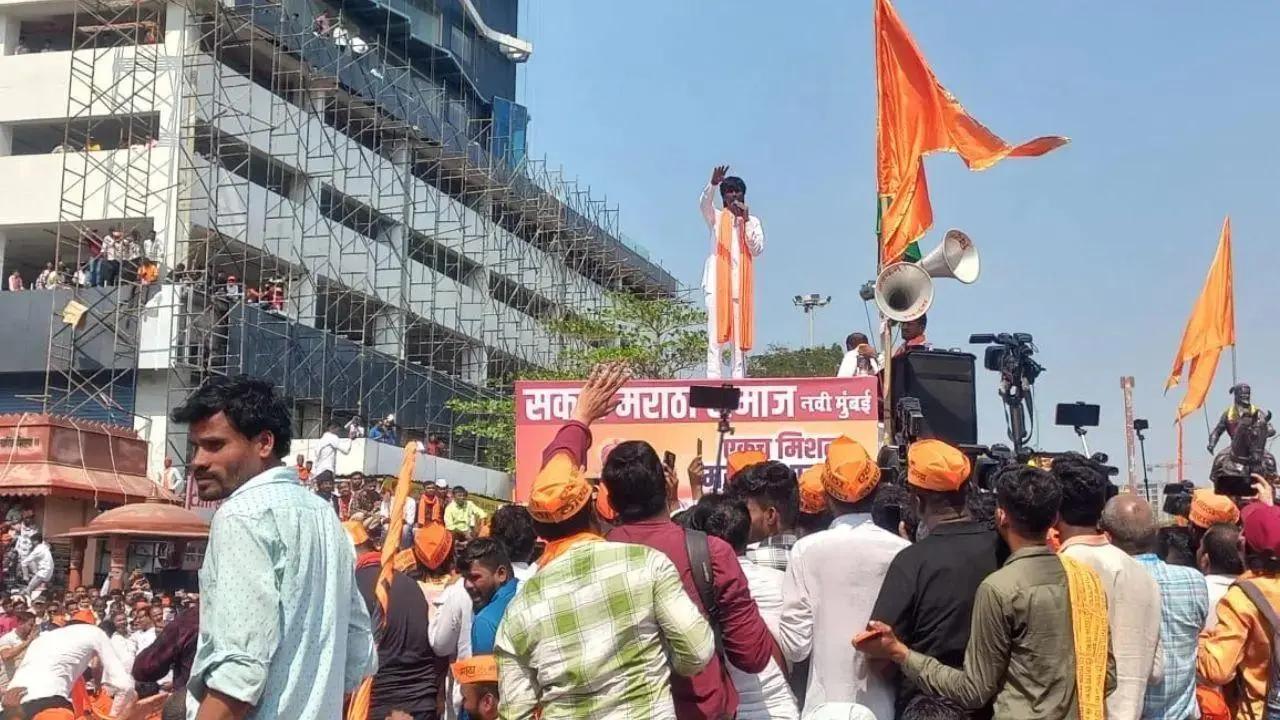Experts in Marathi's "Modi" script are transliterating historical documents from the Nizam rule to identify Kunbis in Marathwada for Maratha quota

Manoj Jarange addresses supporters on Friday/ Sayyed Sameer Abedi
Experts in Marathi's "Modi" script are actively transliterating historical documents from the Nizam rule in various offices to identify Kunbis in Marathwada. This effort seeks to encourage the provision of the Maratha quota.
In consultation with activist Manoj Jarange, the Maharashtra government has published a draft regulation proposing that blood relatives of a Maratha individual with verifiable ties to the rural Kunbi clan be recognised as Kunbis. The Kunbi community belongs to the OBC category and Jarange advocates for Kunbi credentials for all Marathas, a report in PTI stated.
According to the report, experts told the news agency that they are methodically examining papers from the land records department, tehsil offices, and other relevant sources, including pre-1967 school records, to find instances of Kunbi references. Once discovered, the information in the "Modi" script is transliterated into Devnagri and submitted to district officials, who publish the records on their official websites.
Kamaji Dak Patil, who teaches a certificate course on the "Modi" script at Dr Babasaheb Ambedkar Marathwada University told PTI, "We are examining documents. If we find the mention of Kunbi in these papers, we transliterate the information to Devnagri and hand it over to the district authorities who upload the record on their official website."
He added that it was believed that the records were in Hyderabad but several records were also found in government offices in Marathwada.
"In some papers, the information written in the 'Modi' script is also translated to Urdu or Kannda. Such papers were found in the areas bordering Karnataka and Telangana. 'Modi' was earlier limited to history scholars and archives department. But now, common people are approaching us with papers they have and are trying to understand the script," he told PTI.
According to the report, the "Modi" script, which was originally used to write Marathi, is now transcribed in Devnagri. Some documents containing information in the "Modi" alphabet are also translated into Urdu or Kannada. These manuscripts, discovered in districts bordering Karnataka and Telangana, shed light on the historical language script.
Experts assure that the ink on these historic documents has been well-preserved, making them readable and recognised, the report added. "Modi" script expert Shailendra Wagh told PTI, "The ink on these old documents is in good condition. We can easily read and identify words. Some of the land records are slightly delicate, but documents found at the tehsil office are in good condition as they have not been handled much. They can be preserved for the next 100 years."
 Subscribe today by clicking the link and stay updated with the latest news!" Click here!
Subscribe today by clicking the link and stay updated with the latest news!" Click here!










